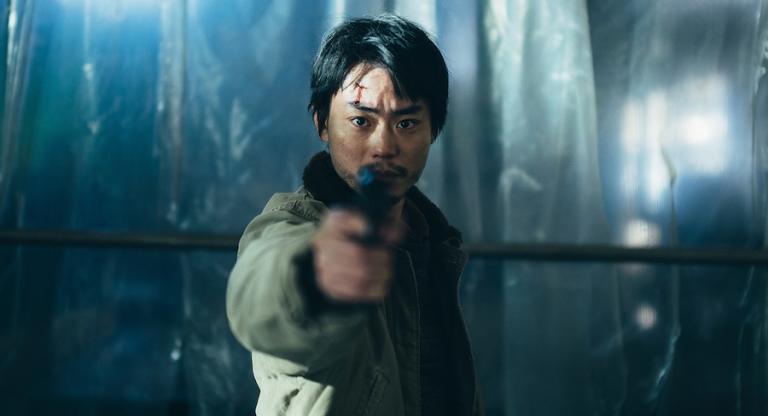Viet and Nam is set in a Vietnamese industrial town in 2001. The film opens on a dark, underground shot of sweaty, soot-covered Viet (Dao Duy Bao Dinh) and Nam (Pham Thanh Hai), a pair of coal miner paramours in their mid-twenties, weary from their dangerous work. Although they are confined to a tight space, the darkness of the coal mine, contrasted by reflecting light, makes it look like they are making love among the stars. Thunderous explosions detonate in the background, but the two men appear comfortable in each other’s arms. Writer-director Truong Minh Quy’s delicate balance of silent stillness with ambient soundscapes separates Viet and Nam from more traditional postwar narratives, such as 2006’s Journey from the Fall, which was not shot in Vietnam and relied more heavily on harrowing psychological elements to depict a more melodramatic vision of postwar Vietnamese life. However, both films were ultimately censored by Vietnamese authorities. Shot on 16mm film, Quy’s visual poem is split into two parts: the first, a subterranean queer love story; the second, a postwar ghost story. These narratives are separated by a title card, but influence each other in inextricable ways.
In the film’s second half, it is revealed that Nam lives with his mother Hoa (Thi Nga Nguyen), and while they don’t explicitly discuss his sexuality, she encourages Nam to invite Viet over for dinner, perhaps in a silent plea to convince Nam not to leave Vietnam via container ship for a new life abroad. The fall of Saigon in 1975 sparked one of the most significant refugee crises in history, lasting well into the 1990s. Economic sanctions, combined with the devastating fallout of the war and subsequent military conflicts, left tens of thousands of Vietnamese citizens with no other option than to flee.
As recently as 2019, 39 Vietnamese people were found suffocated at an Essex industrial estate after attempting to migrate into the United Kingdom, an incident that partially inspired Quy to make the film. Viet echoes similar cries for his lover not to go. In a tender moment in the film, Nam gently excavates his beloved’s ear canal for large gobs of wax blackened from coal dust. “How will I hear when you are gone?” Viet asks. The sense of melancholy behind Nam’s departure is emphasized via Quy’s use of Anh Ang’s lullaby “Oi Tinh Yeu,” which is heard throughout the film. At another point in the film, Nam’s mother reunites with her husband, a soldier killed in the war, in her dreams. Throughout, she is also guided by spiritual visions to locate her husband’s final resting place. At its core, Viet and Nam reveals itself as a film about the intimate third spaces we create with our loved ones in times of transition.
Viet and Nam screens Monday, April 21, at the Marina theater as part of the 68th SFFILM Festival, and opens Friday, April 25, at the Roxie theater. See the rest of our coverage for this year's SFFILM Festival.


